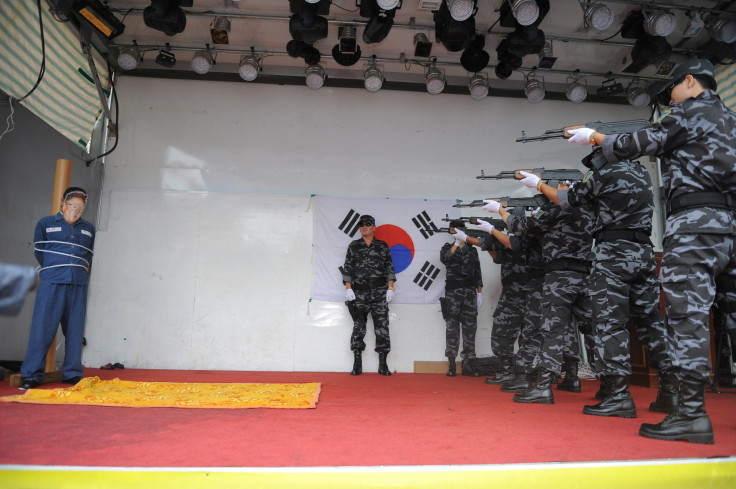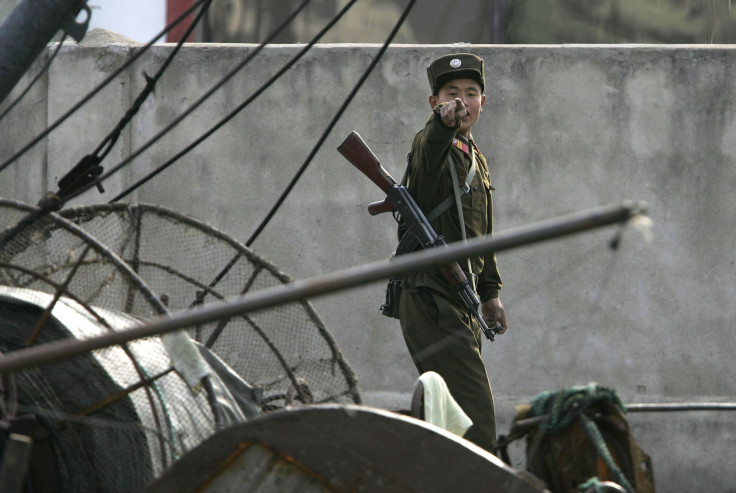North Korea Has At Least 300 Mass Execution Sites And 47 Burial Grounds, Report Says

A human rights group has prepared a preliminary map of execution sites and burial grounds in North Korea, in the first coordinated efforts by activists and researchers to unveil the level of Pyongyang's brutality.
The report by Seoul-based Transitional Justice Working Group (TJWG) uncovered more than 300 execution sites and 47 burial grounds in the country.
The study, conducted over a period of two years, mapped the sites through the testimonies of North Korean defectors.
The group said its motive was to prepare a detailed map of the execution and burial sites using Google Earth satellite imagery and the help of 375 North Korean defectors so that International rights officials can easily locate and exhume the bodies. The recovered forensic evidence can help bring the culprits to justice some day in the distant future, the group said.
“It is not unreasonable to assume that mass grave sites in existence today will still be there years from now,” said Sarah A. Son, the group’s research director, the New York Times reported. “As we have seen in many other post-conflict settings around the world, people will want to know what happened to family members, and an accurate historical record will need to be created as part of the process of recovery, particularly on a scale such as that in North Korea.”
Read: Exploited North Korean Workers Sent To Russia
“We don’t know when there will be a trial or other steps to hold perpetrators of the human rights abuses accountable, but that time will come, and we want to be as ready as possible,” Dan Bielefeld, a web developer and human rights activist from Milwaukee, said. “Our location-based map of suspected sites is a start down that road.”

According to the report, under the regime's harsh laws people can be executed even for petty crimes such as stealing electric cables, having a less than conventional family background and displaying certain behavior traits that disrupts the social norms of the country.
Apart from prison camps, where mass executions of prisoners have been carried out to discourage other convicts from jumping the borders of the facilities or even stealing food, public killings have been carried out on river banks, school grounds and marketplaces.
Some of the defectors revealed that citizens of the country would be executed for stealing mining equipment, copper from factories, smuggling mushrooms to China, distributing South Korean dramas and criticizing the regime of President Kim Jong Un.
Oh Se-hyek, a North Korean defector who conducted the interviews for the mapping project, opened up about the most challenging part of the process – getting North Korean defectors to assist in making the project a success. Se-hyek said he had to promise not to reveal any personal information about the defectors to get them to commit. However, the group’s work is far from finished.
Read: North Korea's Kim Jong Un Celebrates Missile Launch With Banquet
“As we interview more defectors down the road, we expect to locate more killing and burial sites across the North,” executive director of the TJWG Lee Young-hwan said. “Our work is still at an early stage. This is a collaborative work, and we expect more technical and other volunteers to join us.”
TJWG, made up of human rights activists and researchers, receives its funding from U.S.-based National Endowment for Democracy, which in turn is financially backed by the U.S. Congress.
North Korea has previously denied the findings of another study conducted by the United Nations’ commission of inquiry, which in 2014 reported prison camps carrying out systematic torture and other prevalent violence in the country. However, China and Russia stood by Pyongyang and vetoed a Security Council resolution to refer the North Korean leadership to the International Criminal Court in The Hague, to be prosecuted for human rights violation.
© Copyright IBTimes 2024. All rights reserved.












